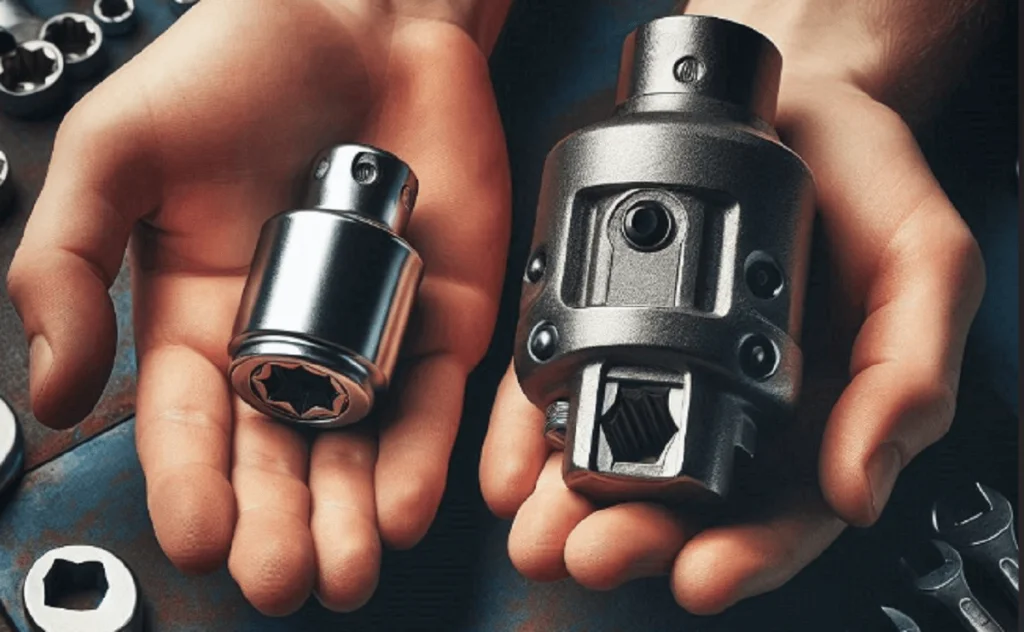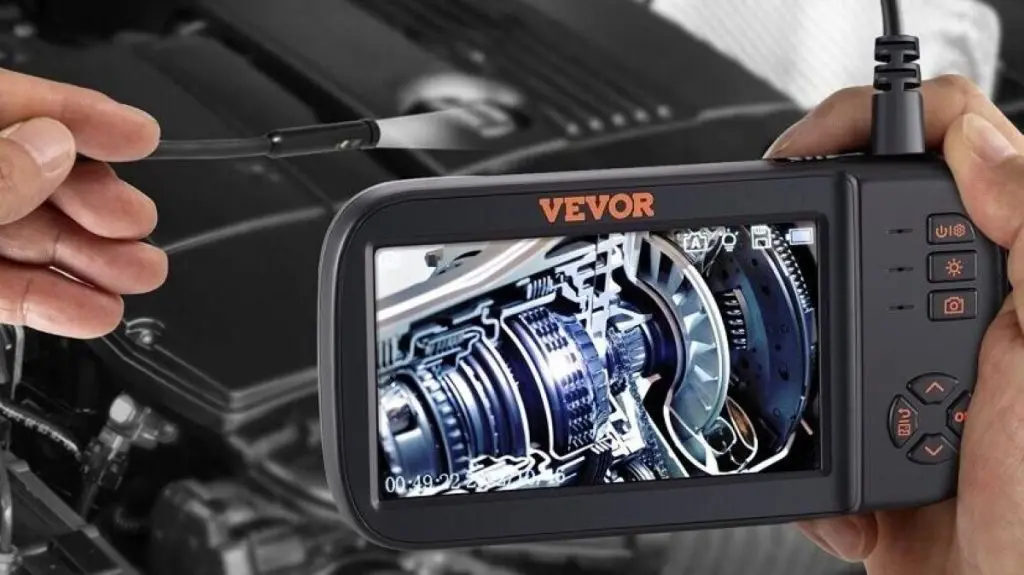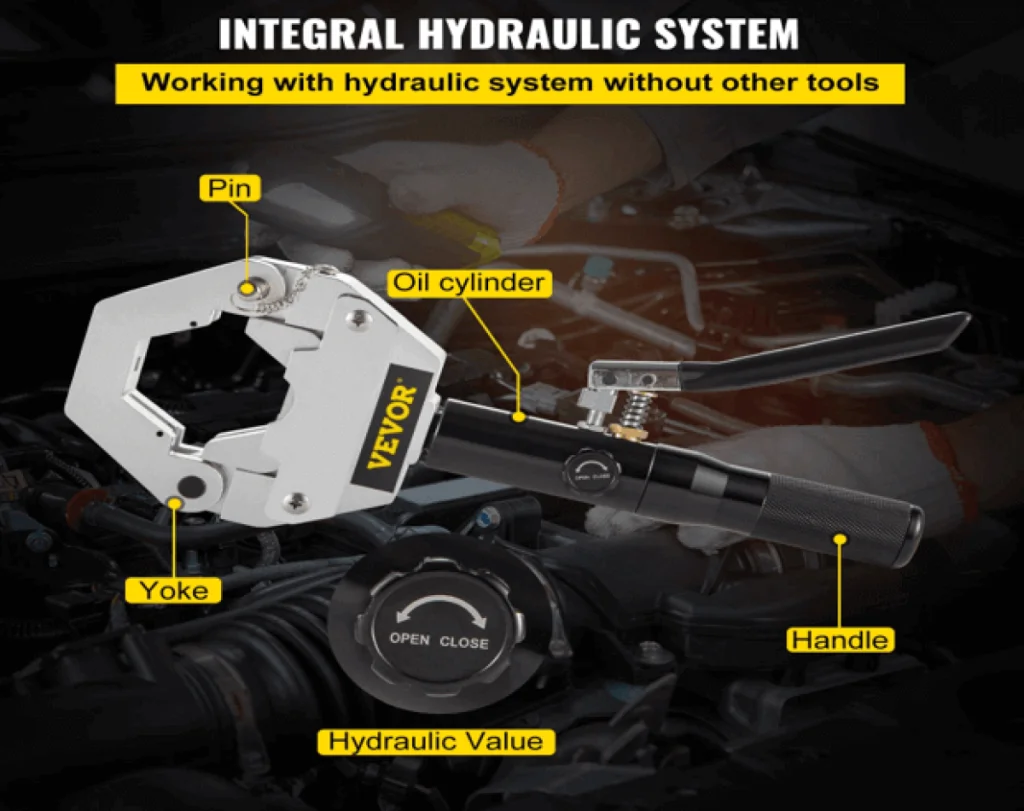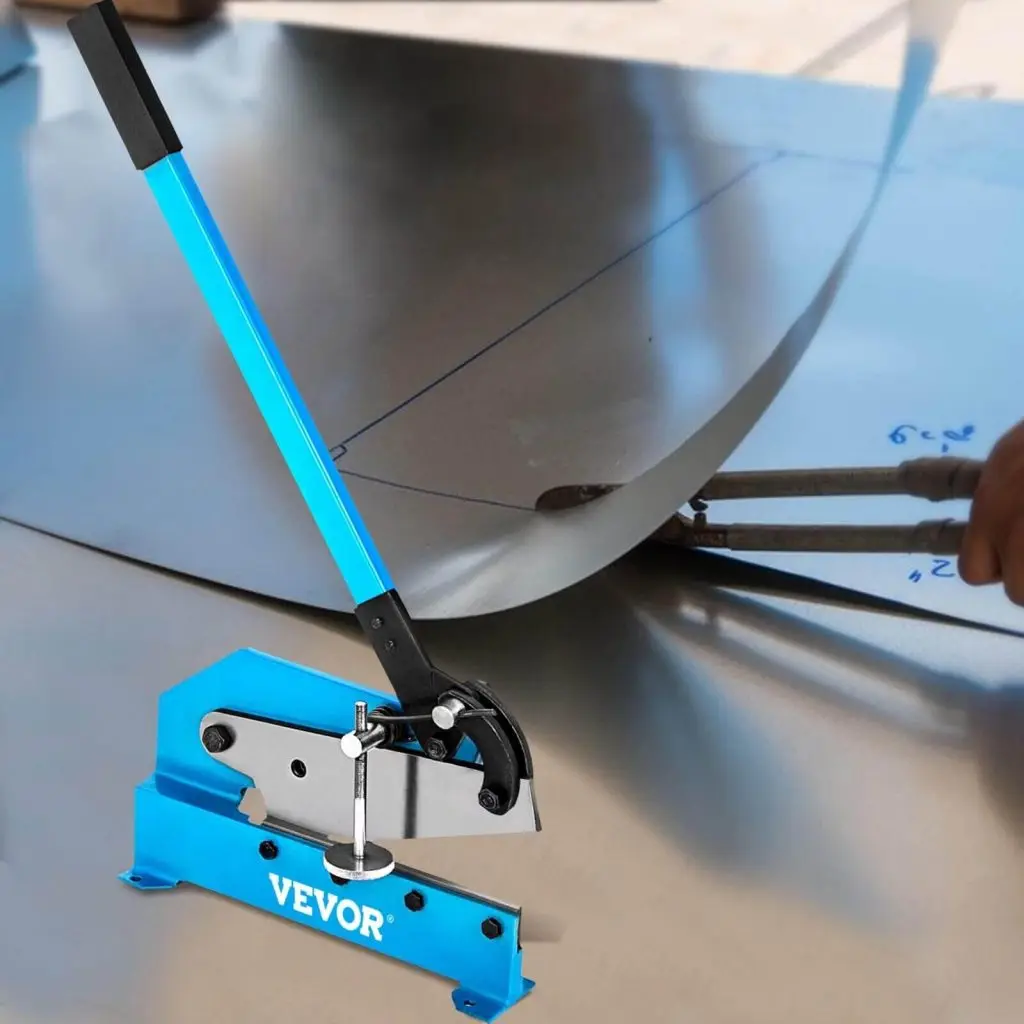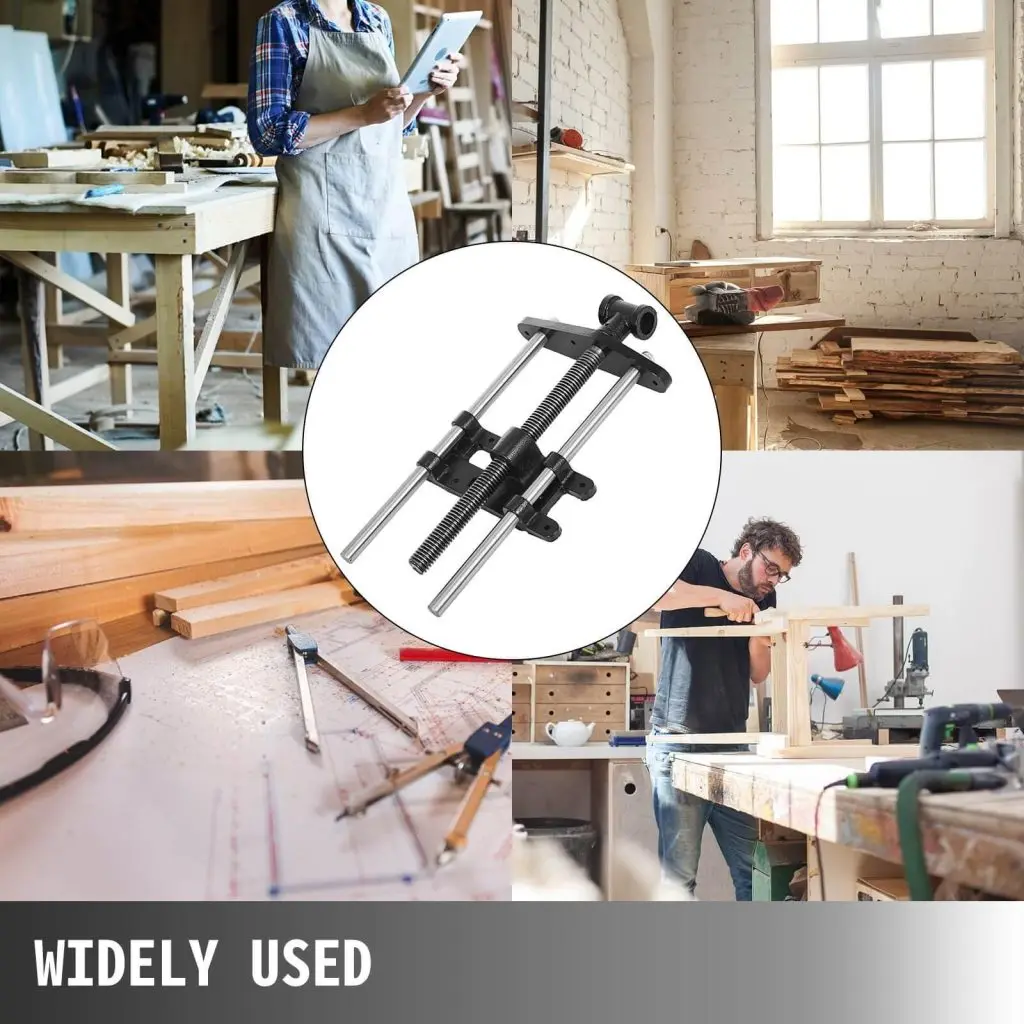Sockets are essential in various industries, including automotive, construction, and manufacturing. They help tighten and loosen fasteners, making tasks more efficient and manageable. However, not all sockets are created equal.
Choosing the correct type of socket—whether chrome or impact—is crucial for ensuring the safety, efficiency, and longevity of both the tool and fasteners. This guide will explore the differences between chrome and impact sockets, helping you decide based on your specific needs and applications.
Table of contents
What Are Chrome Sockets?
Chrome sockets are essential to every mechanic’s or handyperson’s toolkit. They are known for their durability, versatility, and quality finish. These sockets have gained popularity due to their many benefits and usage in different industries.
Composition and Design
Chrome sockets are made from chrome vanadium (Cr-V) steel, a strong and durable material. The steel is forged to create a rigid structure. The sockets get a polished chrome coating. This finish not only looks good but also resists corrosion. The smooth surface makes them easy to clean and maintain.
Common Uses
Chrome sockets are perfect for hand tools like ratchets and wrenches. They are great for tasks that need moderate torque, such as:
- Assembling furniture
- Repairing bicycles
- Light automotive work
Benefits of Chrome Sockets
Durability and Finish
- Polished chrome finish gives a sleek look
- Resistant to rust and corrosion
- Suitable for environments with moisture or chemicals
Versatility
- Available in various sizes and types
- Easy to identify sizes due to the polished finish
- A smooth surface prevents damage to fasteners
In summary, chrome sockets are reliable, versatile, and easy to maintain. They are a solid choice for many tasks, from simple repairs to more detailed projects.
What Are Impact Sockets?
Composition and Design
Impact sockets are tools for high-torque jobs, mainly with impact wrenches and drivers. They are usually made from a strong metal called chrome molybdenum (Cr-Mo) steel. This material is tough and lasts a long time. The manufacturing process involves shaping the steel under high pressure and heating it to make it even more challenging. Unlike regular chrome sockets, impact sockets have thicker walls to handle the strong forces from power tools. They also have a black oxide coating to resist rust and provide a better grip.
Common Uses
Impact sockets are perfect for jobs requiring a lot of force and repeated impacts. Here’s where you might find them:
- Automotive Repair Shops: Changing tires, working on suspension systems, and removing engines.
- Construction: Assembling steel structures, scaffolding, and heavy machinery.
- Manufacturing: Maintaining and fixing industrial machinery, where big bolts and fasteners must be tightened or loosened quickly.
Benefits of Impact Sockets
Impact sockets offer several advantages:
Strength and Resilience: They are built to absorb and spread the force from impact tools, reducing the risk of breaking or deforming.
Compatibility with Power Tools: These sockets work well with impact wrenches. They fit securely on fasteners, which reduces the chance of slipping. This makes your work more efficient and helps your tools and sockets last longer.
Overall, impact sockets are an excellent choice for heavy-duty tasks. They are durable, safe, and perform well under pressure.
Chrome Vs. Impact Sockets – Key Differences
Choosing the right socket can make a big difference in your work. Here are the main differences between chrome and impact sockets.
Material and Construction
Chrome Sockets
- Made from chrome vanadium (Cr-V) steel
- Strong and durable
- Polished chrome finish for corrosion resistance
- Easy to clean
Impact Sockets
- Made from chrome molybdenum (Cr-Mo) steel
- It is more challenging and more resilient than Cr-V steel.
- Thicker walls to handle high-torque forces
- Black oxide finish for durability and a non-slip grip
Performance and Durability
Chrome Sockets
- Best for manual torque applications
- Suitable for general maintenance tasks
- Suitable for moderate torque jobs
- Versatile for different environments
Impact Sockets
- Designed for high-torque applications
- Used with impact wrenches and drivers
- Handle repetitive impacts without cracking.
- Ideal for heavy-duty tasks in automotive, construction, and manufacturing
Safety and Application
Chrome Sockets
- Safe for general use
- Not suitable for high-torque applications
- Great for DIY projects and hobbyists
- Easy to use and versatile
Impact Sockets
- Made for use with impact wrenches and drivers
- Safer and more reliable under high-stress
- Essential for high-torque tasks
Both chrome and impact sockets have unique uses. Chrome sockets are great for everyday tasks and general maintenance. They are robust, easy to clean, and suitable for moderate-torque jobs. On the other hand, impact sockets are built for tough, high-torque jobs. They can handle repeated impacts and are perfect for heavy-duty tasks like car repair and construction.
Impact Sockets vs Chrome – Pros and Cons
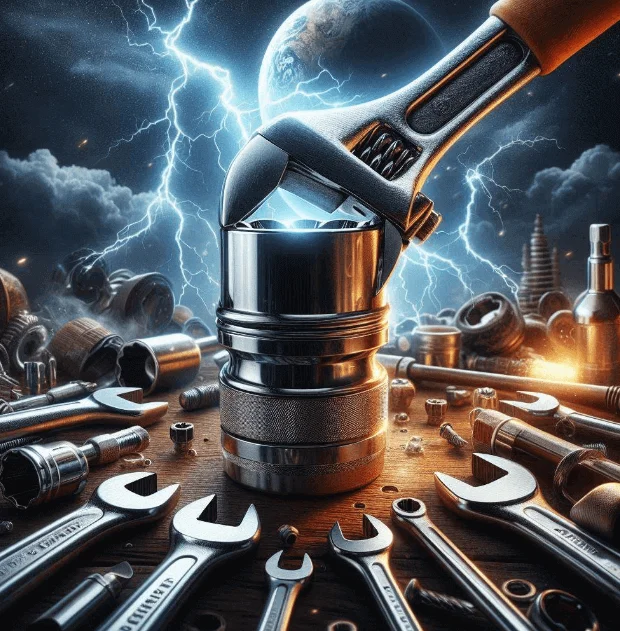
Chrome Sockets: Pros and Cons
Pros
- Versatile and suitable for a wide range of applications
- Easy to clean and maintain
- Corrosion-resistant
- Ideal for manual torque applications
Cons
- Not suitable for high-torque applications
- May crack or deform under excessive pressure
- Limited impact resistance compared to impact sockets
Impact Sockets: Pros and Cons
Pros
- Extremely durable and resilient
- Designed for high-torque applications
- Compatible with impact wrenches and drivers
- Less likely to crack or deform under pressure
Cons
- More expensive than chrome sockets
- Limited versatility compared to chrome sockets
- Require specific tools (impact wrenches) for use
How to Choose the Right Socket for Your Needs
Choosing the right socket for your needs involves considering a few key factors. This will help you achieve the best performance and stay safe.
Figure Out Your Needs
Before picking a socket, think about what you’ll be using it for:
- Type of Tasks: Are you doing heavy-duty work or simple repairs?
- Torque Requirements: Do you need a lot of force or just a bit?
- Work Environment: Will you be in rough conditions or a typical garage?
Use impact sockets if you’re dealing with high torque and repeated impacts. For essential maintenance and DIY tasks, chrome sockets should be fine.
Think About Your Budget
Consider how much you want to spend:
- Impact Sockets: They cost more upfront but last longer and handle high-torque jobs well.
- Chrome Sockets: These are cheaper and good for lighter work, but if you use them a lot, you might need to replace them sooner.
Quality Matters
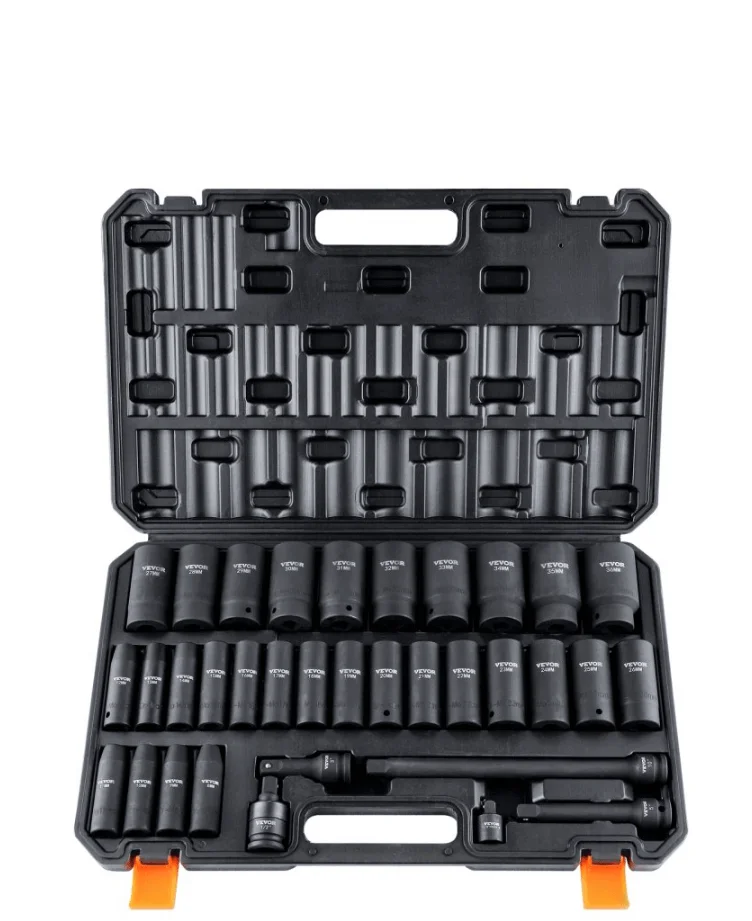
Choose sockets from well-known brands. Brands like VEVOR follow strict rules when making their products and often offer warranties. High-quality sockets from trusted brands last longer and work better, giving you peace of mind.
Key Points to Remember:
Assess Your Needs: Type of tasks, torque needed, work environment.
- Budget Considerations: Impact vs. chrome sockets.
- Brand and Quality: Go for reputable brands for durability and safety.
Tips for Socket Maintenance and Care
Want to keep your sockets in top shape? Here are some simple tips to help you out:
Cleaning and Storage
- Clean After Each Use: Remove dirt, grease, and debris to prevent rust.
- Store Properly: Keep your sockets dry and organized, like a toolbox or socket rack. This prevents damage and makes them easy to find.
Regular Inspection and Replacement
- Inspect Regularly: Look for signs of wear, such as cracks, chips, or bends.
- Replace When Needed: If you find any damage, get a new socket immediately. This helps avoid accidents and protects your tools and fasteners.
By following these tips, your sockets will last longer and work better.
FAQs: Chrome Sockets vs. Impact Sockets
What are the main differences between chrome sockets and impact sockets?
Chrome sockets are best for everyday tasks. Impact sockets are tough and made for high-torque jobs with impact wrenches.
Can I use chrome sockets with an impact wrench?
No, it’s not a good idea. Chrome sockets can crack or deform under high-torque force from impact wrenches.
What makes impact sockets suitable for high-torque applications?
Impact sockets are tougher and have thicker walls. They can handle the force from impact wrenches without getting damaged.
What should I consider when choosing between impact sockets and chrome sockets?
Think about the torque you need and where you’ll be working. For heavy-duty tasks, go with impact sockets. They are more durable and reliable.
Last words
Picking the right socket is essential for completing your work well and safely. If you need sockets for everyday tasks, go for chrome ones. If you’re dealing with heavy-duty jobs, impact sockets are the way to go. They can handle more force without breaking.
Remember, quality matters. Cheap tools can cause problems and even be dangerous. Reliable tools last longer and save you money in the long run.Check out VEVOR’s impact sockets. They are built to last and perform well, even under challenging conditions. Investing in good tools is always smart, whether a DIY enthusiast or a professional.

